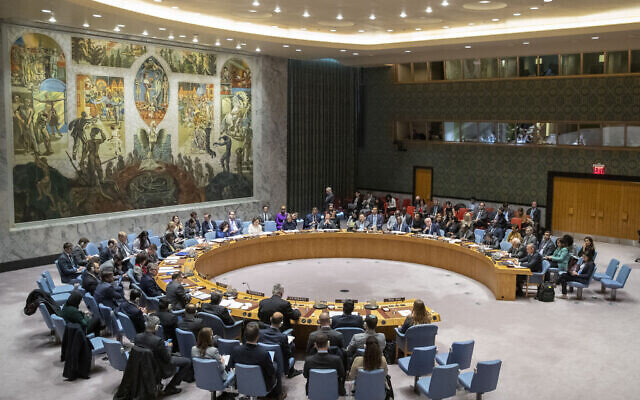UN set to roundly reject U.S. resolution on Iran: diplomats

TEHRAN – The United Nations Security Council is set to roundly reject a U.S. resolution to extend an arms embargo on Iran, according to UN diplomats.
According to the diplomats, opposition to the resolution’s current form is so widespread that Washington is unlikely to secure the nine votes required to force Moscow and Beijing to wield their vetoes.
“The resolution takes a maximalist position on Iran,” one diplomat told AFP.
Another said the draft “goes beyond the current provisions” of the ban on conventional weapons sales to Iran that ends on October 18.
The United States has stepped up calls for an extension of UN arms embargo on Iran since April.
Under UN Security Council Resolution 2231, which endorsed the 2015 Iran nuclear deal (JCPOA), arms embargo against Iran expires in October.
On June 30, the U.S. was rebuked at the UN Security Council meeting, including by the five European countries on the council.
U.S. President Donald Trump pulled America out of the nuclear deal in May 2018 and slapped unilateral sanctions on Iran under a campaign of “maximum pressure”.
The U.S. resolution, seen by AFP, effectively calls for an indefinite extension of the embargo on Iran and uses hawkish rhetoric.
“The focus should remain on preserving the JCPOA,” a third diplomat told AFP.
“It is the only way to provide assurances about the exclusively peaceful nature of Iran's nuclear program. No credible alternative to this instrument has ever been proposed since the U.S. withdrawal,” the diplomats added.
“This is a car crash that everyone knows is going to happen,” New York-based UN expert Richard Gowan told AFP, describing the U.S. draft as a “poison pill of a text”.
U.S. Secretary of State Mike Pompeo announced on Wednesday that the U.S. would put forward its anti-Iran resolution despite ardent opposition from Russia and China.
Former U.S. special representative for Iran Brian Hook, who resigned this week, had asserted during his tenure that if the U.S. resolution failed, the administration would pursue another approach to preserving the Iran arms ban.
The U.S. is expected to argue that it legally remains a “participant state” in the nuclear accord only to trigger the so-called snapback that would restore all UN sanctions, which had been in place against Iran prior to the deal’s inking.
However, China, Russia and even European allies of the U.S. have made it clear that they believe the U.S. has no legal standing to invoke the snapback provision.
Iran has repeatedly said that the United States, through its unilateral pullout from the deal, forfeited all rights to have a say in the agreement.
MH/PA
